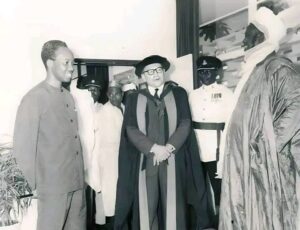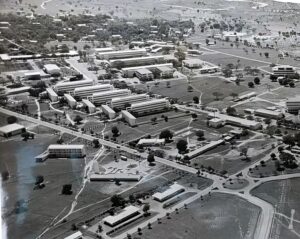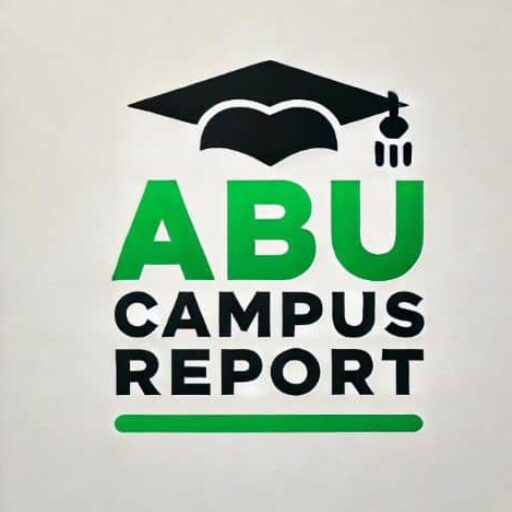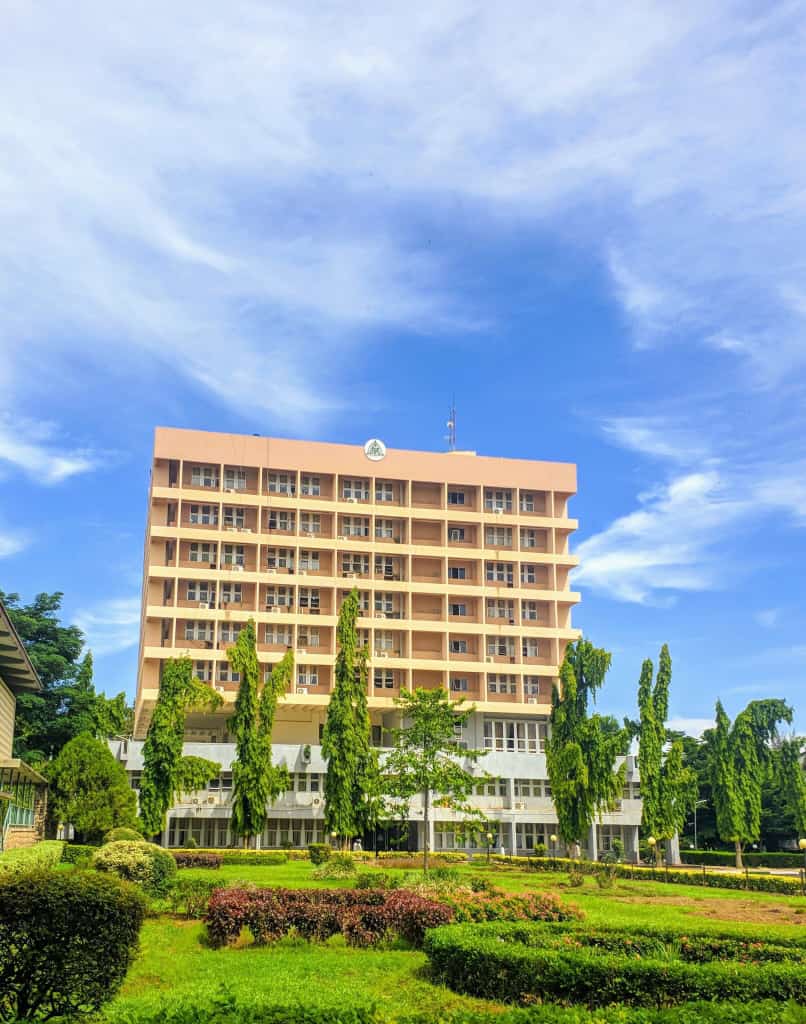Today, Saturday, 4th October, 2025, Ahmadu Bello University, Zaria, proudly turns 63 years old.
Founded on 4th October, 1962, the great institution rolled out the drums to mark this special anniversary, though in a low-key manner. Part of the celebrations include special prayers by staff and students in mosques and churches across both Samaru and Kongo campuses for the continued growth and progress of the university.
To commemorate the day, the current Vice-Chancellor, Prof. Adamu Ahmed, will also address a press conference at the VC’s Conference Room in Zaria, where he is expected to highlight ABU’s remarkable contributions to Nigeria, Africa, and the global community.
How It All Began
The idea of establishing a university in Northern Nigeria was first proposed in 1959 when the Ashby Commission on Post-School Certificate and Higher Education recommended the creation of a university in Zaria.
This became reality in April 1961 when the Legislature of Northern Nigeria passed a law establishing a Provisional Council. Later that year in November 1961, the council was inaugurated under the chairmanship of Sir Kashim Ibrahim, who would go on to serve as Governor of Northern Nigeria and Visitor to the university.
That same year, Sir Norman Stanley Alexander, a New Zealander and Professor of Physics at University College Ibadan, was appointed the first Principal and later became the pioneer Vice-Chancellor.

The university was named after Sir Ahmadu Bello, the Sardauna of Sokoto and Premier of Northern Nigeria, who served as the first Chancellor and performed the official opening on 4th October, 1962.
ABU drew its early foundation from institutions such as:
-
The Nigerian College of Arts, Science, and Technology, Zaria (1955)
-
The Clerical Training Centre, Kongo (1957)
-
The Samaru Agricultural Research Station (1924)
-
The Shika Stock Farm (1928)
At its birth, ABU started with only four faculties — Agriculture, Engineering, Law, and Sciences — along with 15 academic departments and just 426 students.
By 1975, a federal decree placed ABU under the Federal Government, giving it the status of a federal university.
RECOMMENDED: 6 Reasons Why ABU Zaria Is One of the Best Universities in Nigeria
Growth and Expansion
Over the decades, under successive leadership, ABU has grown into one of the largest and most influential universities in Africa.
By 1987, when it turned 25, ABU had already become the largest university in sub-Saharan Africa, covering a massive land area of about 7,000 hectares.
Today, ABU boasts of:
-
18 faculties
-
110 academic departments
-
A College of Medical Sciences
-
A Postgraduate School
-
A Distance Learning Centre
-
An International Institute of Online Education
-
Three Africa Centres of Excellence
-
And several research institutes and centers
The university continues to introduce new undergraduate and postgraduate programmes, while also running professional and certificate courses to meet the demands of a changing world.

The Vice-Chancellors Who Shaped ABU
Since its founding, ABU has been led by distinguished Vice-Chancellors, each of whom left their mark on the institution:
-
Prof. Norman Stanley Alexander (1961–1966)
-
Prof. Ishaya Audu (1966–1975)
-
Prof. Iya Abubakar (1975–1978)
-
Prof. Oladipo Akinkugbe (1978–1979)
-
Prof. Ango Abdullahi (1979–1986)
-
Prof. Nayaya Mohammed (1986–1991)
-
Prof. Daniel Saror (1991–1995)
-
Maj. Gen. Mamman Kontagora (rtd) – Sole Administrator (1995–1998)
-
Prof. Abdullahi Mahadi (1998–2004)
-
Prof. Shehu Usman Abdullahi (2004–2009)
-
Prof. Abdullahi Mustapha (2010–2015)
-
Prof. Ibrahim Garba (2015–2020)
-
Prof. Kabiru Bala (2020–2025)
-
Prof. Adamu Ahmed (May 2025 – date)
Each leader has played a role in expanding ABU’s size, programmes, and reputation, both within Nigeria and internationally.
The Founding Philosophy
At the opening ceremony in 1962, Sir Ahmadu Bello made it clear that the philosophy of ABU would be built on the “cardinal principle of imparting knowledge and learning to men and women of all races without distinction on the grounds of race, religion, or political beliefs.”
Article 4 of its 1962 and 1975 Laws further cemented its objectives:
-
To provide liberal and standard courses in the humanities, sciences, and other fields of study.
-
To promote research and the advancement of learning.
-
To spread knowledge across Nigeria and beyond.
YOU MAY READ: ABU Distance Learning Centre, Courses, School fees, and How to Apply
Happy 63rd Anniversary, ABU 🎉🎓
For 63 years, ABU has stood tall as a center of learning, research, and excellence shaping leaders, empowering dreams, and driving national development.
From the lecture halls to the laboratories, from Samaru to Kongo, ABU has been home to hundreds of thousands of students from across Nigeria and beyond. It has proven time and again that education unites us in diversity.
Today, we celebrate not just a university, but a legacy of knowledge, inclusion, and impact.
Happy 63rd Anniversary, Ahmadu Bello University!
May ABU continue to soar higher, break new grounds in innovation, and remain a beacon of hope and pride for generations to come.
Happy 63rd Anniversary to ABU, from all of us at ABU CAMPUS REPORT 🏛️🔥

